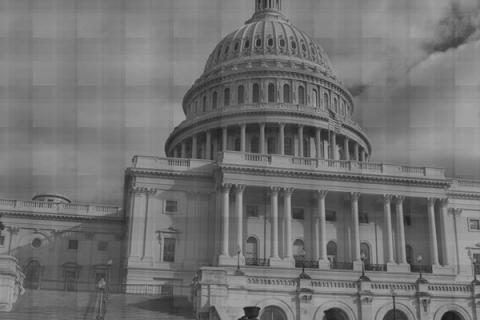As two-party rhetoric heats up over reviving the U.S. economy, a new Gallup survey indicates that large majorities of Independents are siding more with Democrats on certain economic proposals than Republicans.
The survey, conducted in January but released last week, specifically listed a set of five economic proposals and solicited input from Republicans, Democrats, and Independents.
Addressing topics in President Barack Obama’s State of the Union, listed proposals including the following:
1. Giving tax breaks to U.S. corporations that bring manufacturing jobs back to the U.S. from overseas.
2. Pressuring China to allow fairer trade between the U.S. and China.
3. Increasing federal government spending to support the development of alternative energy sources.
4. Increasing federal government spending for education and job training for the long-term unemployed.
5. Increasing federal income taxes on upper-income Americans.
Independents agreed with these proposals with 79%, 64%, 66%, 77%, and 64% approval respectively.They side with the Democrats instead of the Republicans on the issues of alternative energy and taxing upper-income Americans.
Meanwhile, both Republicans and Democrats favor giving tax breaks to corporations that return manufacturing jobs to the U.S., and the two parties agree on pressuring China for fairer trade. Finally, they both favor increasing federal government spending for education and job-training for the long-term unemployed.
Republicans and Democrats, however, are polarized in regards to increasing federal income taxes on upper-income Americans, as well as federal spending on alternative energy development. Republicans are largely against such measures while Democrats favor them.
Gallup says that Americans’ view of the economic proposals in this survey can be partially explained by an earlier ranking of concerns. "Jobs/unemployment," "National debt/ Federal budget deficit," "Continuing economic decline/Economic instability," "Outsourcing of jobs overseas/Create jobs here in the U.S.," and "Obama not doing a good job/No plan/ Lack of leadership" were among the top five concerns according to a Gallup survey on January 12 of this year. Sixth on the list was political bickering/Congress.
Democrats appear to have the upper hand at the moment, with President Obama’s approval rating recently hitting 50% in a Washington Post/ABC News poll. Yet, there are still some key factors to take into account even with President Obama leading Mitt Romney in a hypothetical match-up.
In the days leading up to the news that the nation’s unemployment rate dropped to 8.3%, only 11% of Americans described the economy as good. Voters were evenly divided on whether President Obama deserves a second term, and both President Obama and former Massachusetts Governor Mitt Romney are tied when it comes to who’s perceived as better able to create jobs.
Overall, voters appeared to trust Romney more than Obama in handling the economy by 50% to 44%. Romney also holds an advantage among Americans by 52% to Obama’s 39% in being the better candidate to handle the budget deficit, according to the Washington Post/ABC News poll.
The latest Gallup Poll was conducted through telephone interviews January 23, 2012 with a random sample of 1,008 U.S. adults. The maximum margin of sampling error for the total sample of national adults was +/- 4 percentage points, with a 95% confidence rate.

